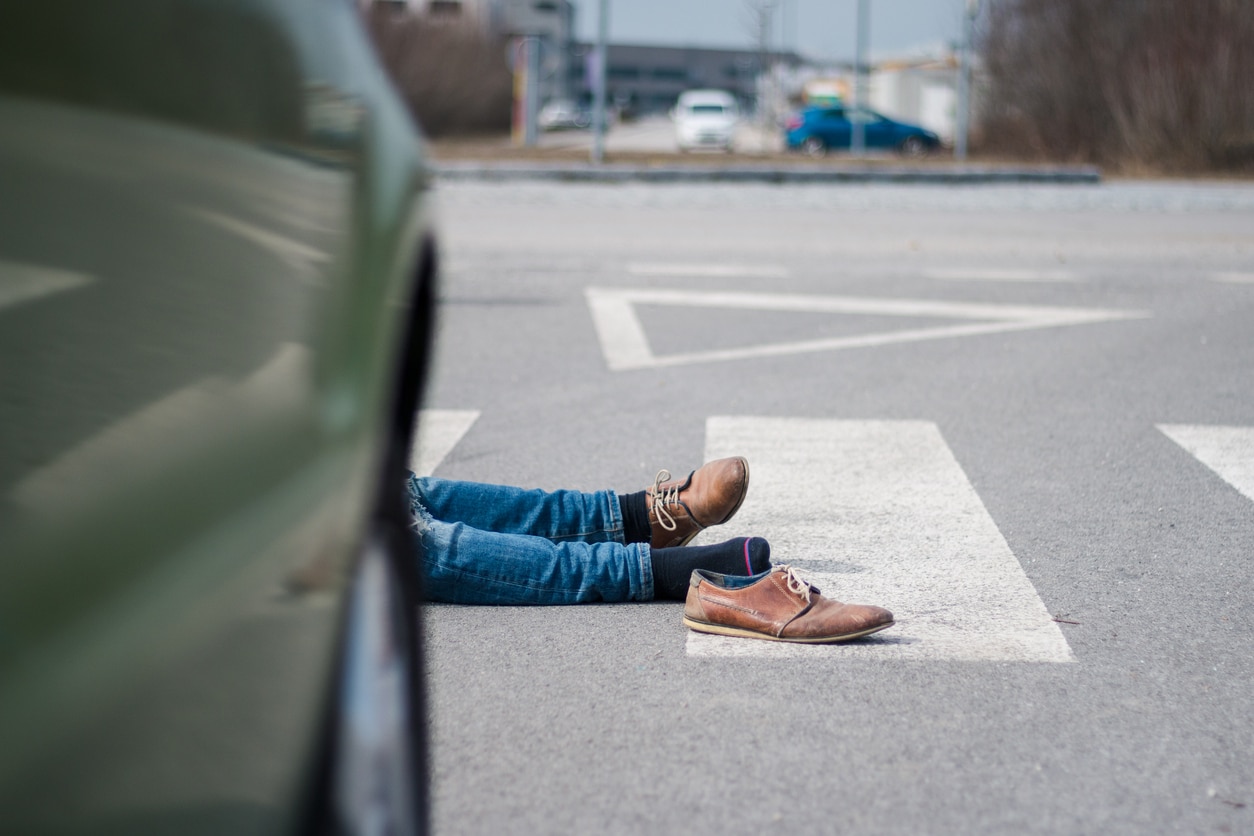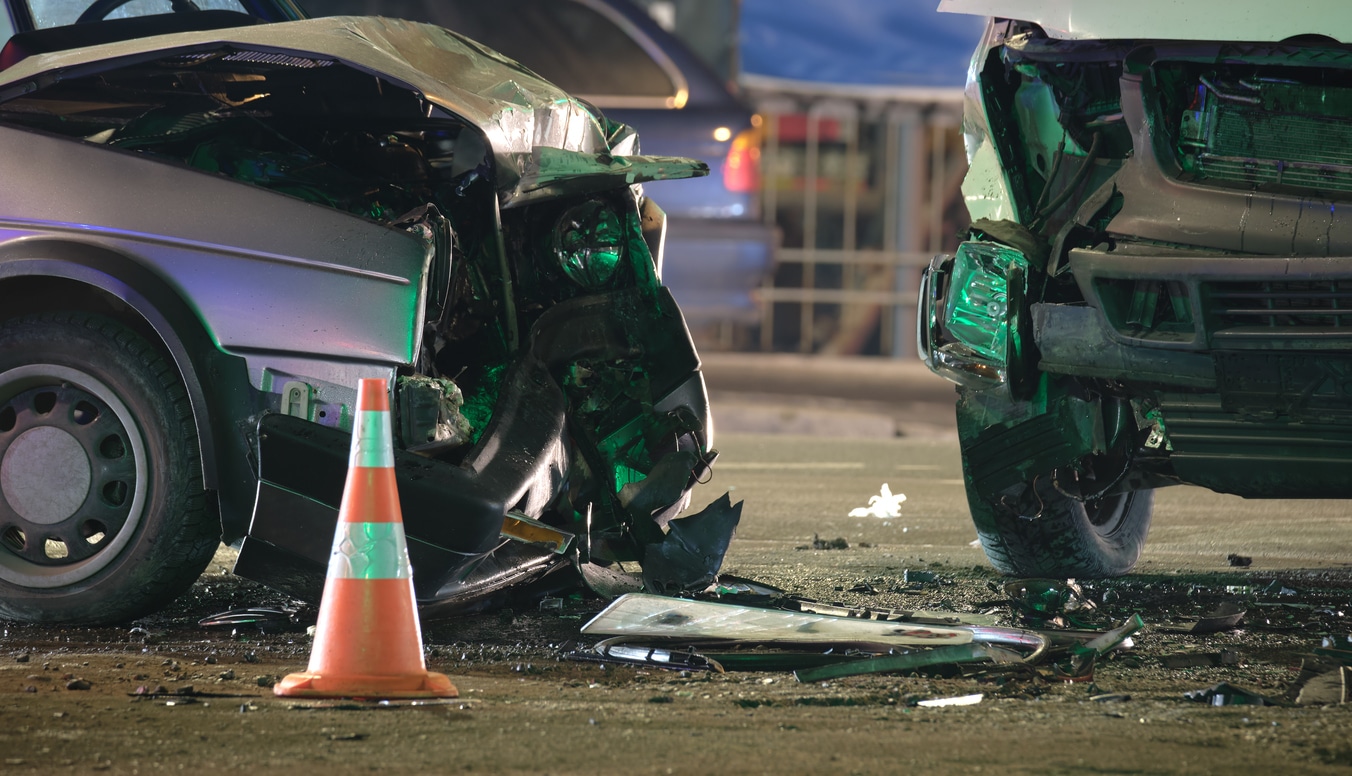As leading vehicular homicide lawyers in Orlando, we understand how difficult it is navigating the complexities of these cases without expert legal representation. Contact our law firm to schedule a consultation with an aggressive criminal defense lawyer today.
When you drive everyday without incident, it can be easy to forget how dangerous driving actually is. The only thing stopping two tons of screaming metal from careening into another vehicle, object, or person is the human behind the wheel. And humans, as we all know, are prone to error.
Vehicular homicides involve more than just driver error, though. Inherent to this manslaughter charge is negligence — a legal term for behavior that fails to meet a level of care than any reasonable person would exercise. In the State of Florida, vehicular homicide, also called vehicular manslaughter, is a serious charge with devastating consequences.
If you’ve been accused of vehicular homicide in Orlando, just remember: Being charged with vehicular homicide — or any crime — doesn’t make you guilty. There are several legal defenses that can effectively dispel the idea that a driver was engaging in the negligence that typifies this charge, and Sergio Cruz Criminal Defense can help you explore them.
This article will explain everything you need to know about vehicular homicide in Orlando, including legal definitions, possible defenses, the penalties for conviction, and more.
How to Protect Your Rights if You’ve Been Charged with Vehicular Homicide in Florida
We get it: Public defenders are free, and that’s a big deal. While these attorneys are some of the most hardworking and dedicated legal professionals you’ll ever encounter, they are also the most overworked — and that’s a problem if your freedom depends on beating conviction.
If you have been charged with vehicular homicide in Florida, you need to understand that the price of conviction isn’t just a slap on the wrist and a few fines — it’s a prison sentence and a permanent criminal record. Even after you have served your time, you may face probation, community service, and a range of other life-altering consequences. When the stakes are this high, you simply can’t afford any less than the best criminal defense.
Fortunately, our criminal defense attorneys have the expertise, resources, and years of experience you need to avoid conviction and protect your future. At Sergio Cruz Criminal Defense, we defend each client with the full force of our legal prowess, mounting an aggressive defense strategy to secure the best possible outcome.

How Does Florida Define Vehicular Manslaughter?
According to Florida Statutes Section 782.071, vehicular manslaughter occurs when a person causes the death of another human being or unborn child by operating a motor vehicle in a reckless, negligent manner. Here are the key elements:
- Operation of a motor vehicle. The defendant must be driving or in actual control of a motor vehicle at the time of the incident, whether it involves a car, truck, motorcycle, or other motorized vehicle.
- Causation of death. The defendant’s operation of the vehicle must be the direct cause of another person or unborn child’s death.
- Reckless or negligent driving. The driver’s behavior must display a degree of negligence that goes beyond ordinary carelessness or irresponsibility. Examples include excessive speeding, aggressive driving or “road rage,” driving under the influence (DUI) of alcohol, or a similarly unacceptable behavior that shows disregard for human life.
If these elements are present, the driver may be charged with vehicular homicide or manslaughter. However, incidents involving DUI may qualify for a different criminal charge, which we’ll explore below.
How Does Florida Define DUI Vehicular Manslaughter?
DUI vehicular manslaughter refers to a specific type of homicide where the driver was operating a vehicle under the influence of drugs or alcohol. This crime is governed by Florida Statutes Sections 316.193 and 782.071 and includes the following key elements:
- Driving under the influence. The defendant must be driving (or in actual physical control of the vehicle) while under the influence of drugs, alcohol, or a combination of the two, significantly impairing their faculties or elevating their blood alcohol concentration (BAC) beyond the legal limit of 0.08%.
- Operating a motor vehicle. The defendant must be operating the vehicle, whether a car, truck, motorcycle, or another type of motorized vehicle, at the time of the car accident.
- Causation of death. The driver’s operation of the vehicle while under the influence must directly cause another person’s death or the death of an unborn child.
DUI vehicular manslaughter is an especially tragic, serious criminal offense that the State of Florida prosecutes to the full extent of the law. However, securing a conviction for drunk driving manslaughter requires demonstrating various key elements.

How Does a Prosecutor Prove DUI Manslaughter While Intoxicated?
In order to secure a conviction for DUI manslaughter in Florida, a prosecutor will need to demonstrate the presence of several components beyond a reasonable doubt. Here are the primary elements that the prosecutor must prove:
- Driving or in physical control of the vehicle. The prosecutor will need to demonstrate that the defendant was operating the motor vehicle or in actual physical control of it at the time of the accident. This is typically established through witness testimony, the defendant’s admission, or video footage.
- Under the influence of alcohol or drugs. In order to be convicted, the defendant must have been driving under the influence of drugs, alcohol, or a combination of the two to the extent that their normal faculties were significantly impaired, or their BAC registered at 0.08% or higher. In the absence of a BAC reading or other sobriety tests, the defendant’s impairment may be evidenced by testimony from law enforcement officers.
- Death of another person or unborn child. Finally, the prosecution must prove that the defendant’s impaired driving directly caused the death of another person or unborn child, typically accomplished with help from reconstruction experts, medical reports, and witness testimonies.
The prosecutor will likely present various types of evidence to establish these key elements. Evidence may include chemical test results, field sobriety tests, witness testimony, expert witness testimony, reconstruction, and the defendant’s own admissions.
Penalties for DUI Vehicular Homicide in Florida
In the State of Florida, DUI manslaughter is considered a serious felony offense, punishable by various penalties. The exact legal consequences depend on the specific circumstances of the case, including whether it is classified as a first-degree or second-degree felony, but will likely include the following:
- Second-degree felony. If charged as a second-degree felony, DUI manslaughter is punishable by up to 15 years in prison, up to 15 years on probation, up to $10,000 in fines, permanent revocation of the driver’s license, and restitution payments to the victim’s family.
- First-degree felony. Certain aggravating factors, such as failing to give information or render aid as required by law, elevate DUI manslaughter to a first-degree felony. DUI vehicular homicide in the first degree is punishable by up to 30 years in prison, up to 30 years on probation, up to $10,000 in fines, permanent driver’s license revocation, and restitution to the victim’s family.
Conviction also results in a range of other consequences, including a permanent criminal record, felony status, civil liability, and more. Additionally, DUI manslaughter comes with a mandatory sentence of four years in prison, which may be enhanced by failure to render aid. The possible legal penalties associated with DUI manslaughter are nearly identical to those given for vehicular homicide.
What Are the Defenses for Vehicular Homicide?
Effectively defended against vehicular homicide charges in Florida requires an extremely strategic approach and expert knowledge of Florida laws. The best defense for you depends on the circumstances of the incident, your criminal history, and various other factors. Our legal defense team can help you explore the following strategic arguments:
- Lack of causation. The prosecution has insufficient evidence linking the defendant’s actions to the fatality, as supported by expert testimony and the demonstration of alternative causes.
- No negligence. The defendant’s actions were not reckless or negligent. The defendant exercised due care, as evidenced by witness testimony or surveillance footage showing them driving responsibly.
- Medical emergency. The defendant suffered a sudden and unexpected medical emergency while behind the wheel, resulting in the accident, and should not be held criminally liable.
- Inaccurate BAC results. In DUI vehicular homicide cases, we may argue that the BAC results were inaccurate, due to improper testing procedures or faulty equipment.
- Violation of constitutional rights. Law enforcement officers violated the defendant’s constitutional rights during or after arrest, through an illegal stop, improper arrest, or a Miranda rights violation.
- Insufficient evidence. The prosecution lacks the evidence to establish the defendant’s guilt beyond a reasonable doubt, as supported by an absence of direct evidence or by challenging witness credibility.
Defending against vehicular homicide or DUI vehicular homicide charges in Florida requires employing a combination of strategies that are case-specific. The legal team at Sergio Cruz Criminal Defense will take every opportunity to question the prosecution’s arguments and witness credibility, as we work to establish reasonable doubt.
Can a Person Get a Conviction Expunged?
In the context of Florida criminal law, expungement is a process by which individuals can seal their criminal record from public view — which can be extremely beneficial for securing employment, housing, and educational opportunities. However, not all criminal convictions in Florida are eligible for expungement.
Typically, non-violent offenses are more likely than violent offenses to qualify for expungement. Some types of convictions, particularly those for serious felonies, are ineligible for expungement — including DUI manslaughter. Having multiple criminal convictions can also make a person’s record ineligible for expungement.
Expungement eligibility is complex, though, and is affected by various factors. If you are interested in expunging a conviction, the best way to explore your options is with assistance from a dedicated criminal defense attorney.

Sergio Cruz Criminal Defense: Vehicular Homicide Defense Lawyers in Florida
If you’ve been charged with vehicular manslaughter or DUI manslaughter in Florida, you are in a world of legal trouble. Your future freedom depends on avoiding conviction, but that is an unlikely scenario without top-tier legal representation. Fortunately, Sergio Cruz Criminal Defense is up to the challenge and standing by. Schedule a consultation with our law office today to start building your life-saving legal defense strategy.
Contact UsContact us now
In need of a strong defense? Don’t face your charges alone. Get the legal support you need call today or email us. Your defense starts here.
